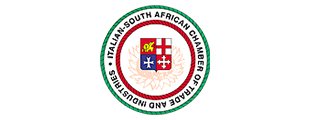
011 615 3906
Cnr Kirkby & Regent Streets, Bedford Gardens, Germiston, 2007

SA company leads Covid vaccine storage solutions
Italcham member Renergen, a natural gas and helium producer, has begun delivering vaccines using its unique Cryo-Vacc technology for vaccine cold storage and transportation. Renergen CEO, Stefano Marani, explains that final tests to validate the product have been completed and he commends his team for taking the project from patent to operation in six months.
The electricity-free technology allows vaccines to be stored at temperatures below -70˚C while being transported both via air and over land. Via air, helium is used and for ground transport nitrogen is used.
“Renergen produces liquid helium at -269 ˚C, so we understand cryogenics very well and managed to provide the service quite easily” Marani says.
Nevertheless, Marani explains that the project led to a deep understanding of cryogenics in logistics for Renergen, and thanks to this opportunity, the company was able to develop additional ideas which they will explore as new businesses ventures in the future. Additionally the project helped build new business relationships including with DPD laser, a South African unit of Geopost, owned by the French post office La Poste. “They are a fundamental partner that manages the logistics and assisted with the conversion from concept to field-ready” Marani states.
Vaccines such as the one made by Pfizer are required to be stored at ultra-low temperatures, which creates logistical complications. This is especially problematic when transporting the vaccines to rural areas. Previous solutions such as the use of dry ice to transport vaccines, especially via air, were inefficient as there is a capacity constraint of about 40-thousand vials per flight, owing to restrictions on the amount of carbon dioxide allowed in an airplane. This issue can be overcome if the dry ice is replaced by helium, making it possible for up to 3.6m doses to be transported instead.
“For now, our capacity for providing these solutions exists in South Africa, with 110 units capable of storing just under 1m doses. But we intend to match this capacity for all emerging markets” Marani says. However exporting the solution to a large emerging market outside South Africa would require then new partners to outsource production, Marani states.
“It’s been a great project, especially in rapid prototyping, and one that has started to benefit the world greatly given that the previous record was only three days. Now getting up to twenty-five days; this means that people can be that much more confident in the efficacy of their vaccines” Marani concludes.
This article originally appeared in the 2021/2022 Directory of the Italian South African Chamber of Trade and Industries ITALCHAM

